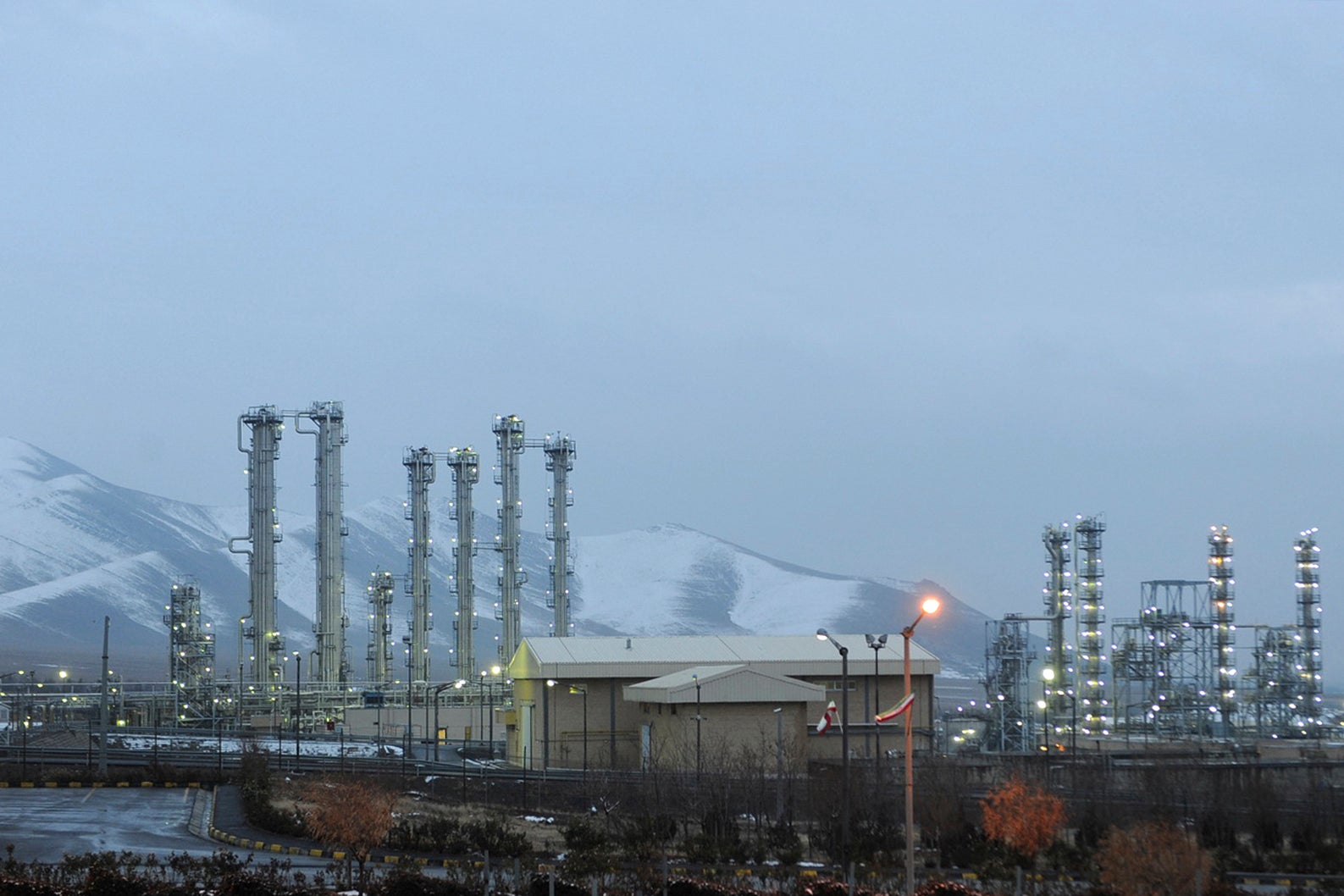UN watchdog: Iran has enriched uranium to highest purity yet
The United Nations’ atomic watchdog says in a report that Iran has enriched uranium to slightly higher purity than previously thought due to “fluctuations” in the process

Iran has enriched uranium to slightly higher purity than previously thought due to “fluctuations” in the process, the United Nations' atomic watchdog said Wednesday.
The report underscores the challenges diplomats face in ongoing talks, that began in April, to bring the United States back into the 2015 nuclear deal with Tehran, which is supported by U.S. President Joe Biden
The initial announcement from Iran that it would start enriching to 60% — which is not yet weapon’s grade but its highest purity yet — came just as the talks were to begin in Vienna International Atomic Energy Agency Director General Rafael Grossi reported to member agencies on Tuesday that the latest inspections confirmed Iran continues to enrich uranium at up to 60% purity in its Natanz plant.
Additionally, samples taken April 22 “showed an enrichment level of up to 63% ... consistent with fluctuations of the enrichment levels experienced in the mode of production at that time,” the IAEA said.
The agency added that on Monday inspectors had “verified that Iran had again changed the mode of production” by which it was producing uranium enriched to 60% purity.
Iran has been steadily violating the restrictions of the landmark 2015 deal after then-President Donald Trump pulled the U.S. out unilaterally in 2018 and reimposed crippling sanctions. The deal promised Iran economic incentives in exchanges for curbs on its nuclear program.
Iran has intended the violations to pressure the other nations involved — Germany, France, Britain, China and Russia — into finding ways to offset the U.S. sanctions, so far unsuccessfully.
The U.S. is not at the table for the talks that began in April, but the other members of the nuclear deal, known as the Joint Comprehensive Plan of Action, or JCPOA, have been shuttling between an American delegation also in Vienna and the Iranian delegation.
The pact is meant to prevent Iran from obtaining a nuclear bomb, something the country insists it does not want to do. The government in Tehran has said it is prepared to reverse all of its violations but that Washington must remove all sanctions imposed under Trump — including measures imposed over issues not related to its nuclear program.
In addition to exceeding the purity of uranium enrichment past the 3.67% allowed, Iranian violations of the JCPOA have also included installing more advanced centrifuges and stockpiling more enriched uranium than permitted.
The U.S. has insisted that Iran must return to full compliance, but just how that would be carried out is still being discussed. For example, diplomats involved concede that Iranian nuclear scientists cannot unlearn the knowledge they acquired in the last three years, but it is not clear whether Iran’s new centrifuges would need to be destroyed, mothballed and locked away, or simply taken offline.
Despite its violations of all major restrictions of the JCPOA, the other countries involved have insisted that it has been worth preserving, if nothing else because it has meant IAEA inspectors have been able to continue monitoring Iran's nuclear program.
That access may be further restricted soon, however.
Iran in February began restricting international inspections of its nuclear facilities, but under a last-minute deal worked out on Feb. 21 during a trip to Tehran by Grossi, some access was preserved.
Under the agreement, Iran said it would no longer share surveillance footage of its nuclear facilities with the IAEA but promised to preserve the tapes for three months.
It will then hand them over to the IAEA if it is granted sanctions relief. Otherwise, Iran has vowed to erase the recordings.
May 21 — one week from Friday — represents the end of that three-month window, though there has been some suggestion Iran may extend the deadline if it is satisfied with the progress of the Vienna talks.
Russian delegate Mikhail Ulyanov tweeted optimistically early Wednesday that it may even be possible to conclude an agreement on bringing the U.S. back into the JCPOA by that time.
“The Vienna talks make progress and the negotiators aim at completing the process as soon (as) possible,” he write. “Hopefully by May 21. It's very difficult but doable.”
Iran’s delegate to the talks, Deputy Foreign Minister Abbas Araghchi, threw some cold water on the hope of extending the deadline, however, tweeting that the resumption of the regular IAEA inspections “is predicated on sanctions being lifted."
"We'd like to get to it before 21 May, if possible,” he wrote
“We're serious & determined, ready to do it even tomorrow: once sanctions (are) verifiably lifted, we'll return to full implementation of the JCPOA.”
_____
Amir Vahdat in Tehran contributed to this story.